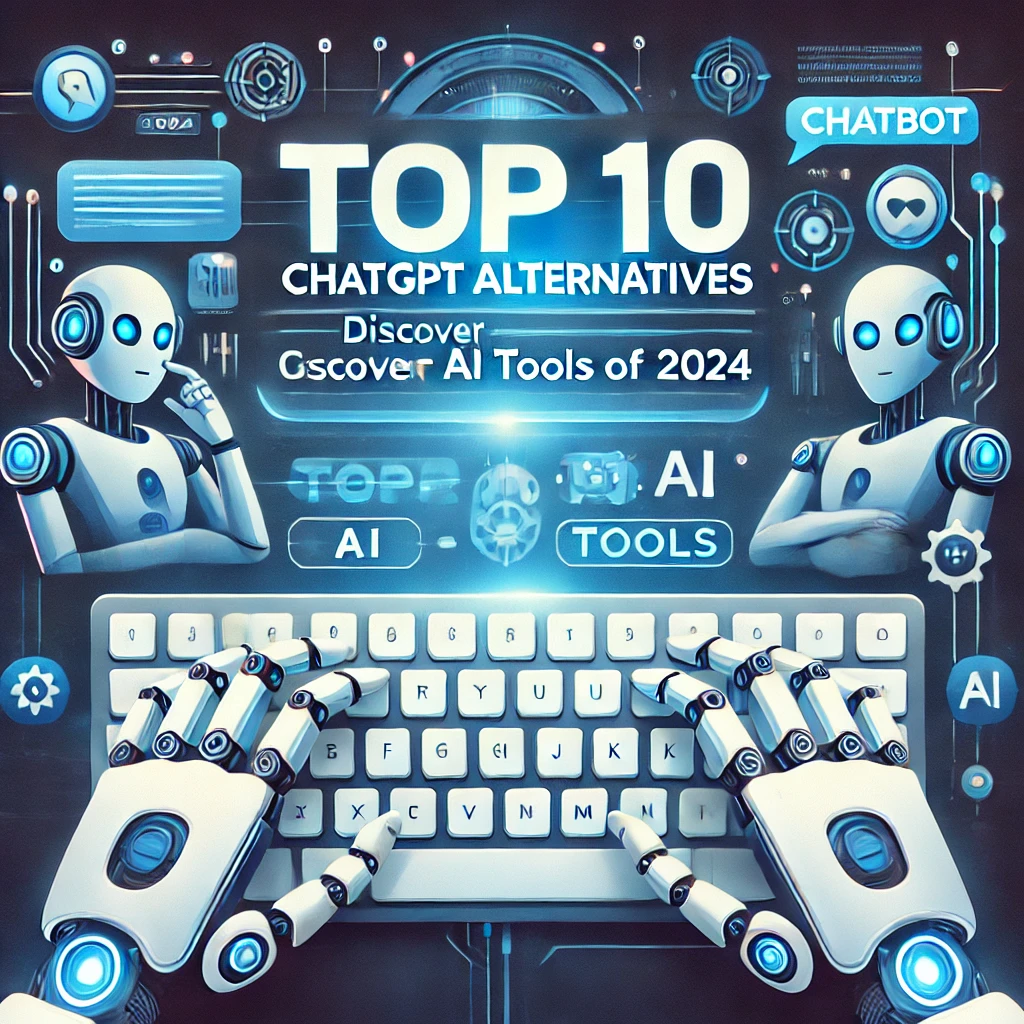Artificial Intelligence has revolutionized the way we interact with technology, and ChatGPT is among the leading conversational AI tools. However, there are several alternatives available, each with unique features catering to different needs. Here is a list of the top 10 AI tools that give ChatGPT tough competition in 2024.

1. Google Gemini
Formerly known as Bard AI, Google Gemini is a versatile AI tool that seamlessly integrates with Google Workspace. It provides multimodal capabilities, allowing users to handle text and images effectively. This makes Gemini an excellent choice for professionals and students alike.
Key Features:
- Real-time data retrieval.
- Integration with Google Docs and Sheets.
- Multimodal functionality (text and image generation).
2. Claude by Anthropic
Claude is an AI chatbot developed to offer human-like responses. With its ability to align tone and context effectively, it is perfect for customer service and creative writing tasks.
Key Features:
- User-friendly interface.
- Improved conversational flow.
- Ideal for personalized interactions.
3. Microsoft Copilot
Powered by GPT-4, Microsoft Copilot is designed to assist with tasks in Microsoft 365 applications. It simplifies complex operations, making it a go-to tool for corporate professionals.
Key Features:
- Embedded in Word, Excel, and PowerPoint.
- Real-time collaboration and data analysis.
- Enhanced productivity tools.
4. Jasper AI
Jasper AI is tailored for content creators and marketers. Its focus on generating high-quality marketing copy, blogs, and social media posts makes it indispensable for businesses.
Key Features:
- AI-driven content templates.
- Multilingual support.
- Customizable tone and style.
5. Chatsonic
Chatsonic stands out with its ability to generate real-time data and images. It is highly versatile and supports integrations with various platforms.
Key Features:
- Image generation capabilities.
- Real-time information retrieval.
- Voice command functionality.
6. Perplexity AI
Perplexity combines the functionality of a search engine with AI capabilities, delivering accurate and comprehensive responses. It’s an ideal tool for researchers and knowledge seekers.
Key Features:
- AI-powered search engine.
- Summarizes complex information.
- Interactive Q&A interface.
7. HuggingChat
HuggingChat is an open-source AI chatbot developed by Hugging Face. It’s an excellent choice for developers who want to customize AI solutions to meet specific needs.
Key Features:
- Open-source and customizable.
- Developer-friendly tools.
- Suitable for technical applications.
8. QuillBot
QuillBot is a paraphrasing tool designed for writers and students. It helps in rewriting content while maintaining the original meaning and tone.
Key Features:
- Paraphrasing and summarizing modes.
- Vocabulary enhancement tools.
- Grammar checker.
9. Copy.ai
Copy.ai is a powerful tool for generating promotional materials, social media content, and other marketing assets. It’s user-friendly and highly efficient.
Key Features:
- Pre-designed content templates.
- Multiple tone options.
- Supports team collaboration.
10. OpenAI’s GPT-4 (ChatGPT)
While exploring alternatives, it’s important to acknowledge the capabilities of ChatGPT itself. The GPT-4 model offers unmatched conversational skills and adaptability, making it a benchmark for other AI tools.
Key Features:
- Highly conversational AI.
- Versatile application across domains.
- Constantly updated and improved.
Conclusion The choice of AI tool depends on individual requirements. Whether you need an AI for content creation, research, or business automation, there is a perfect tool for you among these alternatives. Explore these options and harness the power of artificial intelligence to simplify your tasks and boost productivity.
